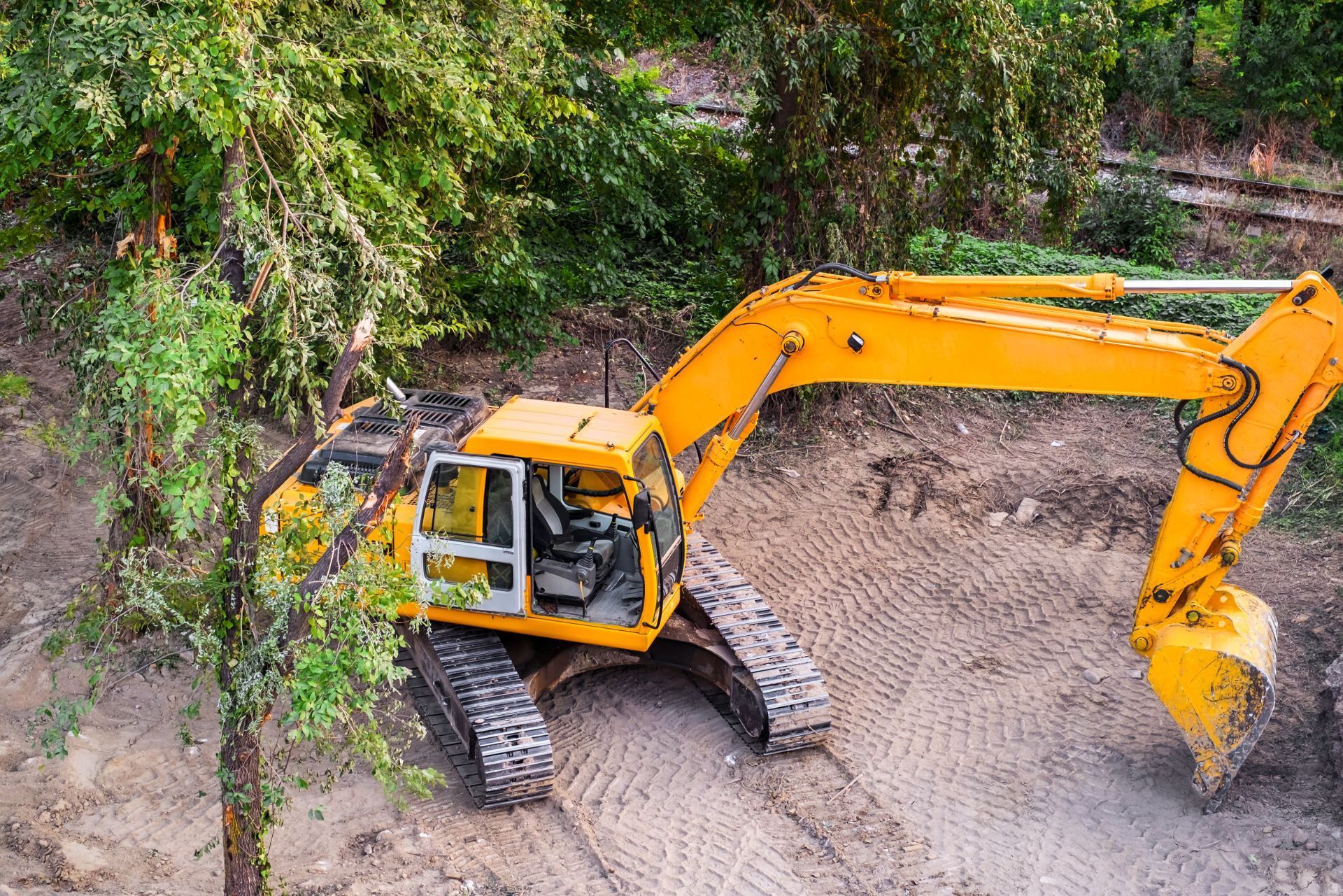Oklahoma Contractors Equipment Insurance

See How We're Different:
Call Us: (405) 241-9710
Top 3 Recommended Policies
Index
Contact Us
Phone
Location
In the bustling world of construction, contractors in Oklahoma face a myriad of challenges, from managing timelines to ensuring the safety of their workforce. One critical aspect that often requires attention is safeguarding the equipment that is essential for day-to-day operations. Contractors equipment insurance is a vital component of risk management, offering protection against unforeseen events that could otherwise lead to significant financial losses. This guide delves into the intricacies of contractors equipment insurance in Oklahoma, providing insights into its importance, coverage options, and how to choose the right policy for your needs.
Understanding Contractors Equipment Insurance
Contractors equipment insurance, also known as inland marine insurance, is designed to cover tools and equipment used in construction and related industries. This type of insurance is crucial for contractors who rely on their equipment to complete projects efficiently and on time. It provides coverage for a wide range of scenarios, including theft, vandalism, and damage from natural disasters.
In Oklahoma, where weather conditions can be unpredictable, having comprehensive coverage is particularly important. Tornadoes, hailstorms, and heavy rains can cause significant damage to equipment, leading to costly repairs or replacements. Contractors equipment insurance helps mitigate these risks, ensuring that businesses can continue to operate smoothly even in the face of adversity.
Beyond weather-related incidents, this insurance also covers equipment while it is in transit or stored at various job sites. Given the mobile nature of construction work, having a policy that protects equipment wherever it is located is essential for minimizing potential losses.

Basic Coverage
Basic coverage typically includes protection against common risks such as theft, fire, and vandalism. This level of coverage is essential for safeguarding equipment from everyday hazards that could disrupt operations. For many contractors, basic coverage forms the foundation of their insurance policy, providing peace of mind that their most valuable assets are protected.
While basic coverage is a good starting point, it is important to assess whether additional protection is needed based on the specific risks associated with your projects. Factors such as the location of job sites and the type of equipment used can influence the level of coverage required.
Additional Coverage Options
In addition to basic coverage, contractors can opt for additional protection tailored to their unique needs. Some common add-ons include coverage for rented or leased equipment, which is particularly useful for contractors who frequently use rented machinery. This ensures that any damage or loss to rented equipment is covered, preventing unexpected expenses.
Another valuable add-on is coverage for employee tools and personal effects. This protects the personal tools of employees, which are often essential for completing specific tasks. By including this coverage, contractors can demonstrate their commitment to employee welfare and minimize potential disruptions caused by tool loss or damage.
Contractors may also consider
business interruption coverage, which compensates for lost income if equipment damage leads to project delays. This type of coverage is especially beneficial for large-scale projects where delays can have significant financial implications.
Choosing the Right Insurance Provider
Evaluating Insurance Providers
When selecting an insurance provider, contractors should consider several factors to ensure they receive the best possible coverage. Reputation and experience in the industry are key indicators of a provider's reliability. Look for companies with a proven track record of serving contractors in Oklahoma, as they will have a better understanding of the specific risks and challenges faced by local businesses.
Customer service is another critical aspect to evaluate. A provider that offers responsive and knowledgeable support can make a significant difference when filing claims or seeking advice on coverage options. Reading reviews and testimonials from other contractors can provide valuable insights into the level of service offered by potential providers.
Comparing Policy Options
Once a shortlist of potential providers has been established, it is important to compare the policy options they offer. Pay close attention to the coverage limits, deductibles, and exclusions of each policy. Understanding these details will help ensure that the chosen policy aligns with your specific needs and budget.
It is also beneficial to inquire about any discounts or incentives that may be available. Some providers offer reduced rates for contractors who implement safety measures or have a history of minimal claims. Taking advantage of these discounts can lead to significant savings over time.
Steps to Secure Contractors Equipment Insurance
- Assess Your Equipment Needs: Begin by taking an inventory of all the equipment used in your operations. Consider the value, age, and condition of each item to determine the level of coverage required.
- Research Providers: Conduct thorough research to identify reputable insurance providers that specialize in contractors equipment insurance in Oklahoma. Consider factors such as experience, customer service, and policy options.
- Request Quotes: Contact multiple providers to request quotes based on your specific needs. Be sure to provide accurate information about your equipment and any additional coverage options you require.
- Compare Policies: Carefully compare the quotes received, paying attention to coverage limits, deductibles, and exclusions. Consider the overall value offered by each policy, rather than just the cost.
- Select a Policy: Choose the policy that best meets your needs and budget. Ensure that you fully understand the terms and conditions before signing any agreements.
- Review and Update Regularly: Once your policy is in place, review it regularly to ensure it continues to meet your needs. Update your coverage as necessary to account for new equipment or changes in your operations.

Common Mistakes to Avoid
Underinsuring Equipment
One of the most common mistakes contractors make is underinsuring their equipment. This can lead to significant financial losses if equipment is damaged or stolen and the insurance payout is insufficient to cover the replacement costs. To avoid this, it is crucial to accurately assess the value of your equipment and ensure that your coverage limits reflect this value.
Regularly updating your policy to account for new purchases or changes in equipment value is also important. This ensures that your coverage remains adequate as your business grows and evolves.
Ignoring Policy Exclusions
Another mistake to avoid is overlooking policy exclusions. These are specific situations or events that are not covered by your insurance policy. Failing to understand these exclusions can lead to unexpected expenses if a claim is denied. Carefully review your policy documents and ask your provider for clarification on any exclusions that may affect your coverage.
Being aware of exclusions allows you to take proactive steps to mitigate uncovered risks, such as implementing additional safety measures or purchasing supplementary insurance policies.
The Benefits of Contractors Equipment Insurance
Investing in contractors equipment insurance offers numerous benefits beyond financial protection. It provides peace of mind, allowing contractors to focus on completing projects without worrying about potential equipment-related setbacks. This assurance can lead to increased productivity and efficiency, as employees are able to work with confidence knowing that their tools and machinery are protected.
Moreover, having comprehensive insurance coverage can enhance a contractor's reputation, demonstrating a commitment to professionalism and responsibility. Clients are more likely to trust and engage with contractors who prioritize risk management and have measures in place to address potential issues.
Ultimately, contractors equipment insurance is an essential component of a robust risk management strategy. By understanding the coverage options available and selecting the right policy, contractors in Oklahoma can safeguard their operations and ensure long-term success in the competitive construction industry.

